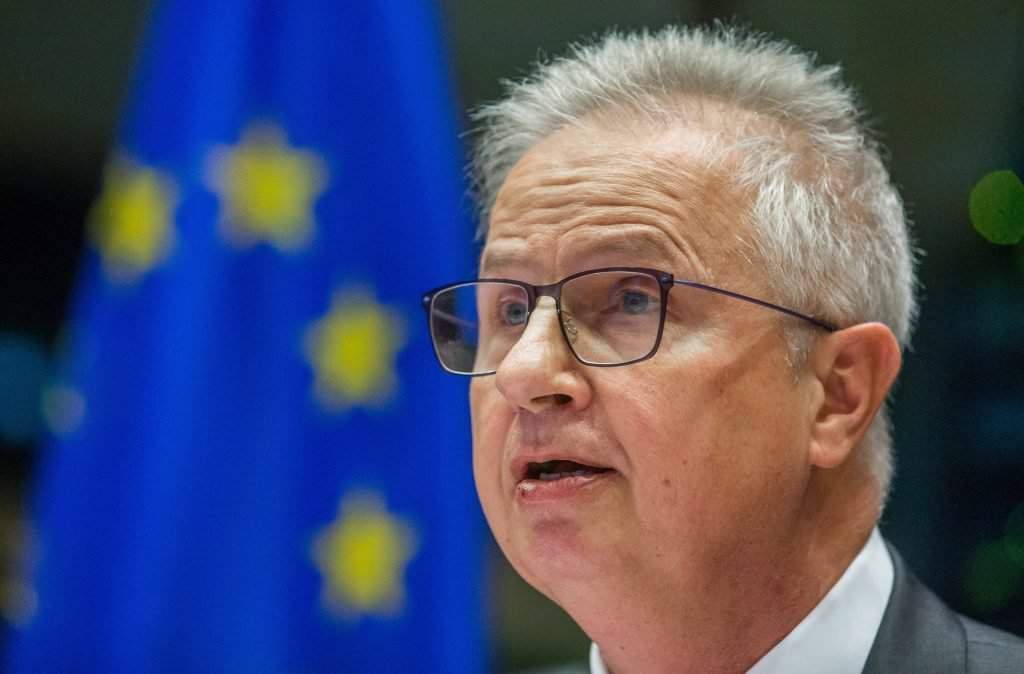Change language:
Government spokesman: Basic issues at LIBE hearing already clarified

Brussels (MTI) – The Hungarian government has already clarified with European institutions the majority of issues concerning basic rights that are expected to be brought up at a hearing by the Committee on Civil Liberties, Justice and Home Affairs (LIBE) on Monday, the government spokesman said.
The state of constitutionality in Hungary is a topic on the agenda, Zoltan Kovács said, adding, however, that substantive issues were announced only a few hours before the meeting commences.
The hearing is “politically motivated” and the document to be discussed was drafted by “so-called civil organisations” that carry out political activities, he added.
These civil organisations are attempting to interfere in politics “without the authorisation of the people”, which is why increased transparency is needed in the case of those trying to obtain a decisive political role, Kovács said. The role of civil organisations is also a matter of dispute in western Europe and the United States, he added.
Kovács told public news channel M1 that Monday’s hearing would be directed against the government’s migration policy, with civil organisations and politicians that “assist migration” arguing against the Hungarian government. Over the past 18 months, the government has persistently stood by its position in connection with illegal migration. The move to set up a second line of defence has been necessary in order to reduce the number of migrants to zero and “to make it impossible for them to come to Europe illegally,” he added.

Hungary has introduced stricter legal regulations because migrants had learnt how to circumvent Hungarian and European Union regulations, so these loopholes have had to be closed, Kovács said.
Other European countries have already introduced or plan to introduce several elements of the measures proposed by Prime Minister Viktor Orbán, so Hungary is a trailblazer, he said. But LIBE appears to include people who are still supportive of migration, Kovács said. The Hungarian government expects political conflicts in connection with the second line of defence and Hungary’s new regulations because the civil organisations that represent opposing political interests argue against protecting Europe, he added.
Justice Minister Lászlo Trócsányi, representing the Hungarian government, told the hearing that Hungary welcomes the participation of civil society in resolving the challenges facing Europe but their role should be differentiated from the role of governments since the latter have the strongest legitimacy. The government is open to dialogue and a number of issues have already been successfully concluded based on a constructive approach, he added.
Trócsányi told a press conference after the hearing that the majority of people addressing the LIBE hearing had been critical of Hungarian measures but the government’s migration policy was gradually being accepted and applied in Europe. Those who believe “everything is hunky-dory, that terrorism doesn’t exist and there’s no reason to be preoccupied by public security …” are deluding themselves.

Speaking later at a press conference, Trócsányi said Hungary’s migration policy was slowly becoming more widely accepted and being implemented by more and more countries in Europe.
The minister said he was certain that there would be disputes between Hungary and the EU on a planned Hungarian bill on migrant detention. He said the planned law under which asylum-seekers would be banned from moving around freely on Hungarian soil until their cases are ruled on was necessary because the number of illegal entrants was not declining.
The minister said the Dublin rules and the Schengen borders code were in conflict with each other, adding that he gave priority to the latter. He said the EU’s current asylum regulations were prone to debate, arguing that they had been drafted back when “there weren’t nearly as many migrants arriving in the continent” as there are now.
Representatives of the Center for Fundamental Rights, Amnesty International, the Hungarian Civil Liberties Union (TASZ) and the Hungarian Helsinki Committee were also among participants at the hearing.
Some rights groups were critical of what they called the Hungarian government’s restrictions of basic rights while one argued that democracy and the separation of powers were working well in Hungary.
Stefánia Kapronczay, the co-leader of Hungarian rights NGO TASZ, said there were very few media left in Hungary “that can be considered independent”. She said that recently “a number of media companies have ended up in the hands of businesspeople with close ties to the government.”
Amnesty International researcher Todor Gardos lamented the “erosion of human rights guarantees”, a lack of democratic debates and the “harassment and surveillance of civil organisations”.
Márta Párdavi, the co-leader of the Hungarian Helsinki Committee, said a balance should be struck between the protection of human rights and the protection of borders. She added, however, that Hungary had failed to find this balance, arguing that refugees arriving in the country had not received the protection they needed.
Miklós Szánthó of the Center for Fundamental Rights said, however, that besides the proper functioning of democracy and its institutions, the media was becoming more balanced after having been dominated by the liberal media.
Source: MTI







